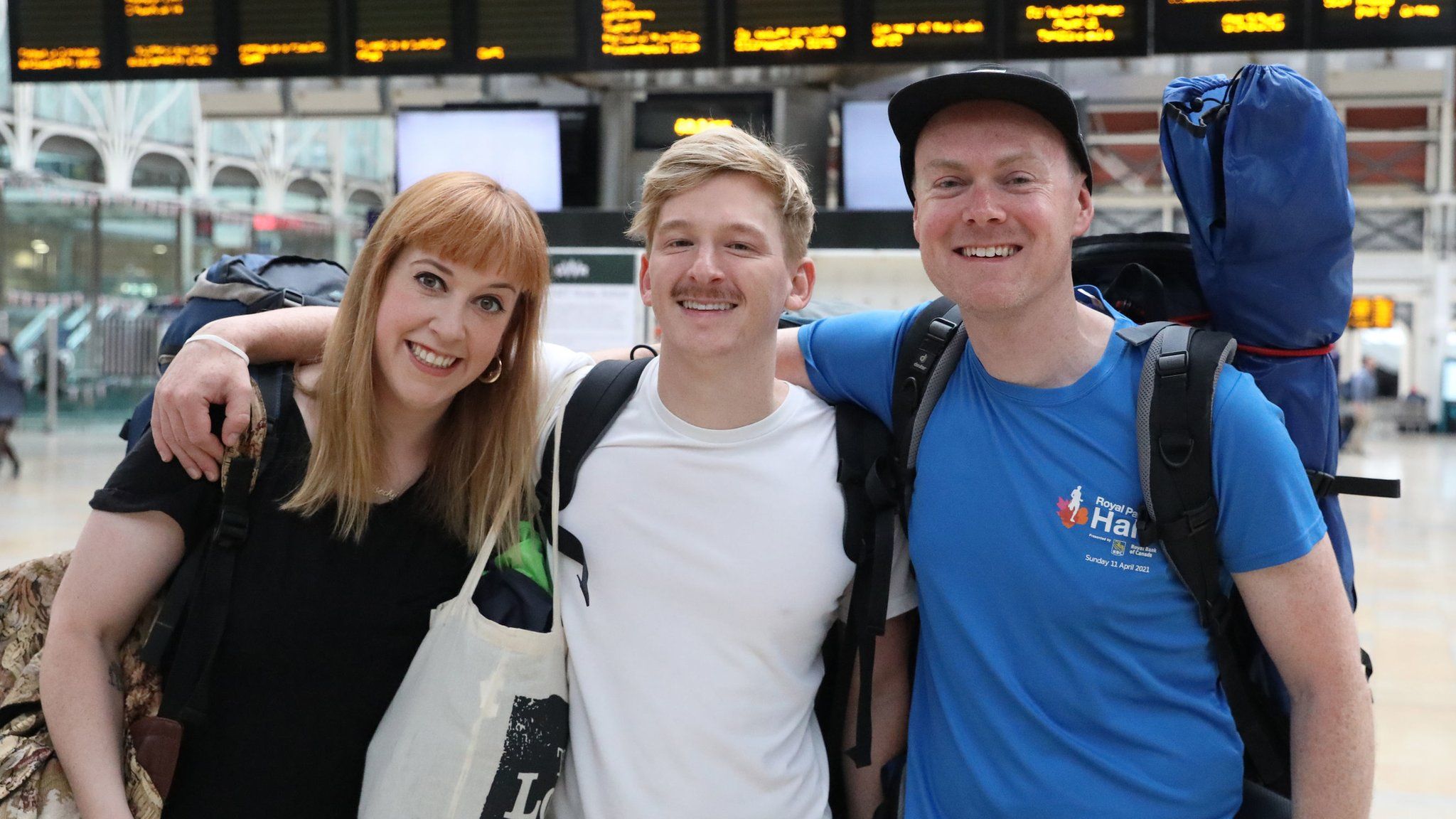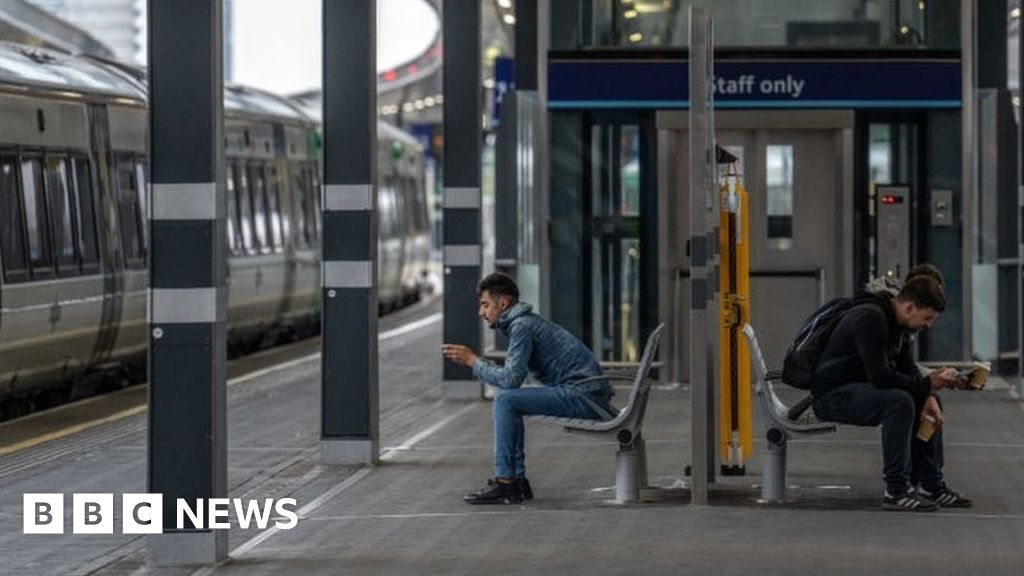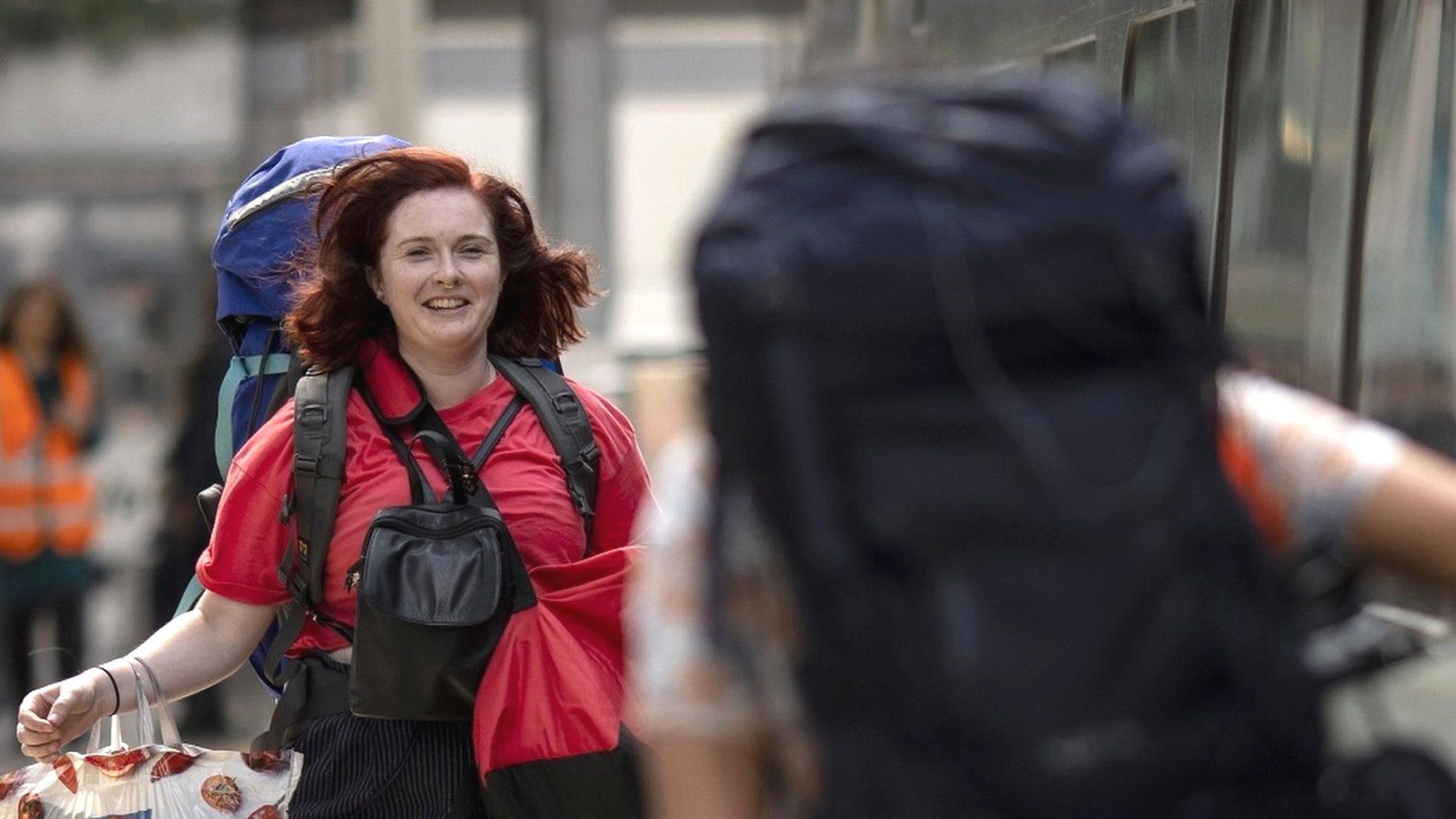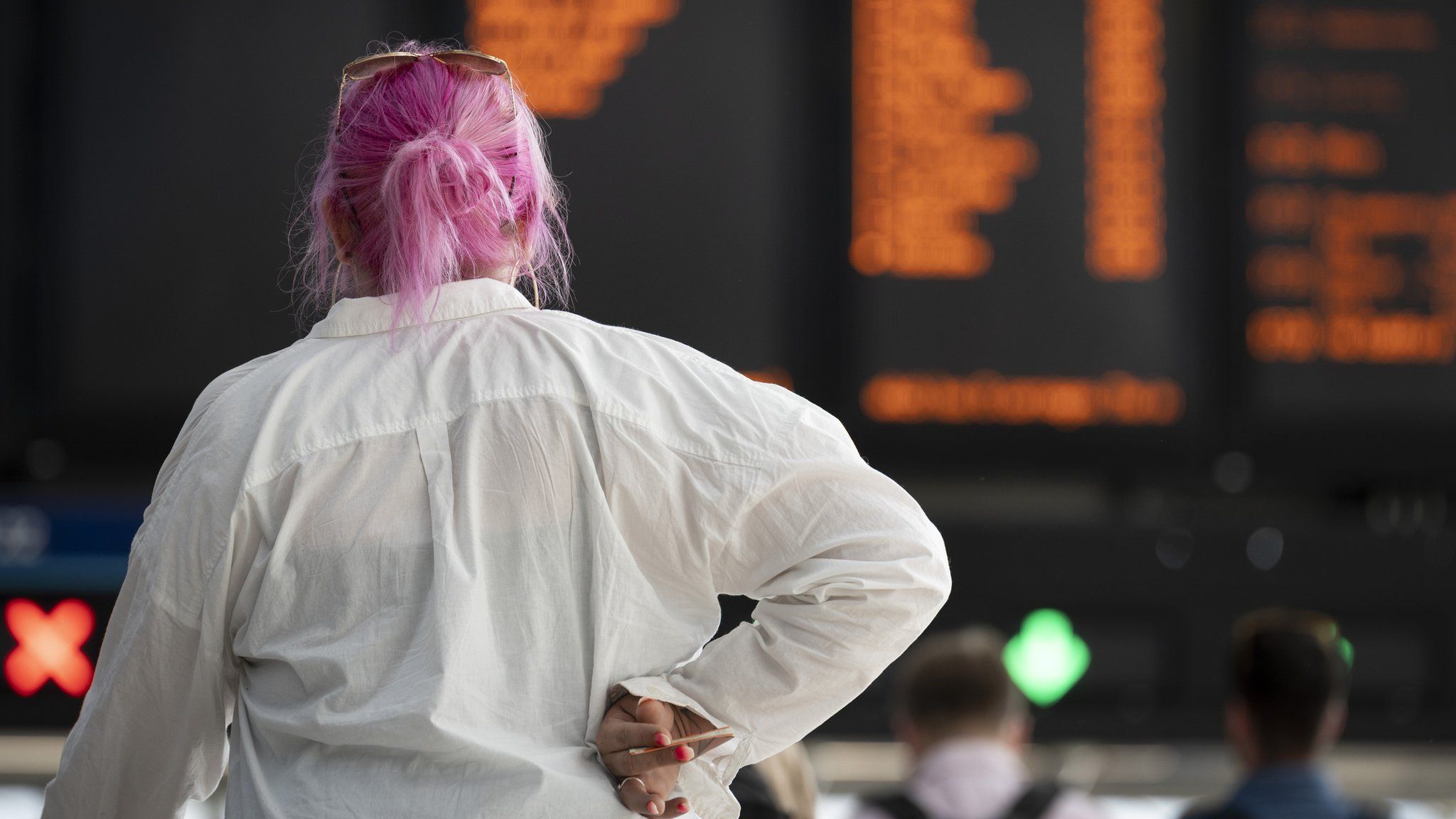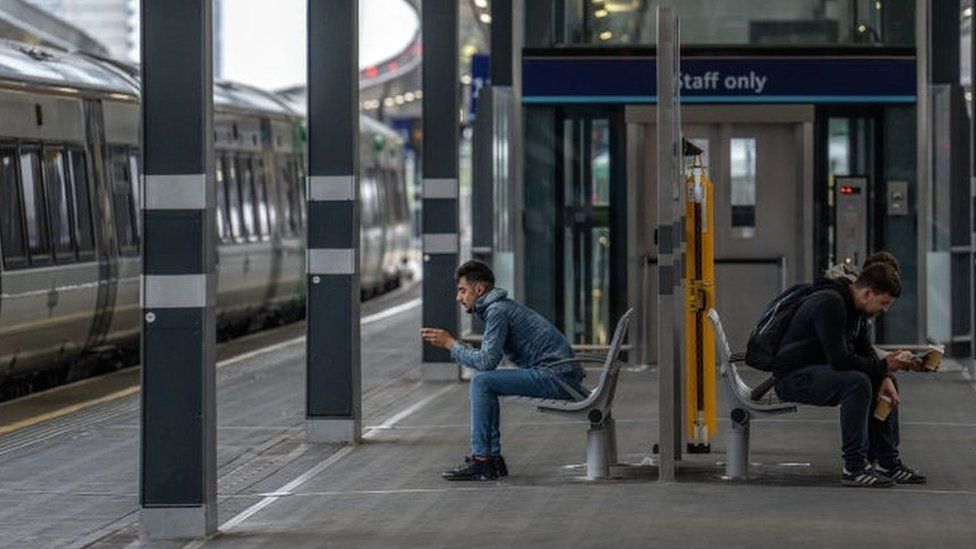 Getty Images
Getty ImagesThe rail strikes this week had threatened to bring the country to a halt.
But after two days of industrial action – as well as the knock-on impact on services for the rest of the week – there is little evidence this has happened.
Empty stations, half-full trains to Glastonbury Festival, and broadly similar traffic levels mean that for the most part, it appears to have been business as usual for many people across the country.
However, for those who can’t work remotely and city centre businesses which rely on footfall from office workers and commuters, the impact has still been substantial.
Shift to working from home
The pandemic has meant many firms are now geared up to switch to remote working.
According to official figures, 38% of workers now spend some of the week working from home.
One office workspace firm in Cheltenham has seen a 30% upturn in business this week from people booking individual day passes.

Claire Storey, founder of the Workplace Network in Cheltenham, says she has a lot of clients who normally commute once or twice a week but during the strikes were unable to do so, meaning they booked more days at her co-working space.
Office occupancy data across the UK on Tuesday was just 22%, compared to 40% the same day last week, according to workplace technology firm Freespace.
Ben Willmott, head of public policy for HR trade body the Chartered Institute of Personnel and Development, says more flexible ways of working have helped employees work from home with short notice.
“This takes pressure off the public transport system and reduced services for those who do have to travel to work,” he adds.
Pre-pandemic, the rail strikes would have taken more of a toll on Leeds Building Society, but boss Richard Fearon says a 30% reduction in the number of people in the office went “seamlessly”.
“In 2019, we only could accommodate about 120 people working from home but now we can accommodate 1,000 wfh and can take these things in our stride,” he adds.
No huge spike in traffic
Working from home and the high cost of fuel also seem to have mitigated the impacts on the roads.
The AA says it appears most drivers have been able to go about their journeys “without too much disruption”. AA breakdown rates are also slightly lower than usual.
“It looks like the early strike notice has given those who can work from home the chance to continue to do so while those who have to travel to work appear to have planned ahead by setting off early and car-sharing,” a spokesperson says.
The AA’s data showed some localised congestion close to major events like Glastonbury and Goodwood festivals, but it expected this to ease once festival-goers are on-site.
More drivers are also choosing to car-share, according to Liftshare.com, who are seeing a new member added to their network every minute.
National Highways also said there hadn’t been a spike in traffic, with levels down 1% on Tuesday compared to 2019.
Location technology firm TomTom found congestion had increased “only slightly” on Thursday morning across most UK cities compared to the same time a week ago.
Uptick in alternative transport
When people did need to travel, many appear to have turned to other modes of transport.
On the first day of the strike there was a big jump in the number of people using cycle and e-scooter hire in London.
Santander Cycle hires, which typically number about 30,000 per day, jumped to 67,000 hires on Tuesday, Transport for London said. This is the second biggest day for the scheme since it began.
E-scooters in London have had around 6,500 hires per day in June but this jumped to more than 10,000 hires on Tuesday.
A rise in bus use was recorded by National Express, which saw a “significant increase” in enquiries and bookings for strike dates. The firm said all of its services are “very busy” this week, with 70% of seats sold out across its UK-wide network. It anticipates this to hit close to 90% by the week’s end.
Meanwhile, Uber said demand in London was up by around 50% on Tuesday. However this reduced significantly on Thursday, which the company said could be an indication of more people working from home.
This video can not be played
To play this video you need to enable JavaScript in your browser.
Many music fans heading to Glastonbury also appear to have heeded advice to travel on other days or find other ways of getting to the festival.
Those travelling from London Paddington on Thursday morning were relieved to find the station was quiet, with plenty of space on trains.
Emptier city centres
With less people commuting, businesses based in city centres have been hit by reduced footfall.
High Street footfall was 16.1% lower to 13:00 BSTon Thursday compared with the same day last week, according to retail analysts Springboard.
In central London, the drop from last week was more than double the national average.
Ashley Davis, who runs Morning Sunshine coffee shop at Warwick Parkway station, says the lack of footfall is “really disheartening”.
“If this strike action does not get sorted, if the government do not get involved, we are left as collateral damage. Our bills still have to be paid every month,” he adds.

So does the lack of impact on many workers mean rail unions have less power to negotiate?
Gemma Dale, a lecturer at Liverpool John Moores University’s business school, says with more office workers now able to do their job from home there is less pressure on the government to resolve the dispute than pre-pandemic.
Prime Minister Boris Johnson has suggested he’s willing to wait it out – and has asked people to “stay the course”.
But the RMT union at the centre of the dispute has said more rail strikes are “extremely likely” if talks between rail bosses and unions continue to fail.
Ms Dale points out the strike is still causing disruption for those who can’t work remotely.
“It is still of course a huge issue to not have an effective rail service running across most of the country.”
-
- 13 hours ago
